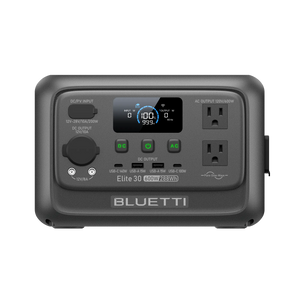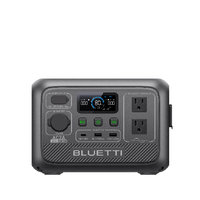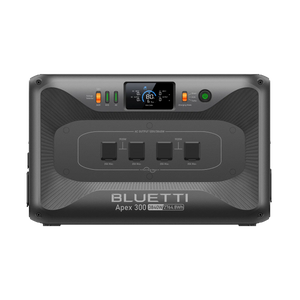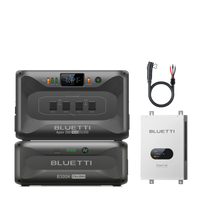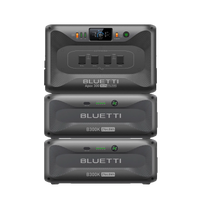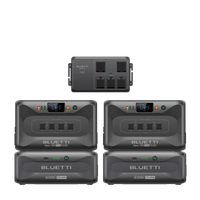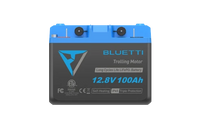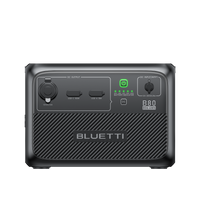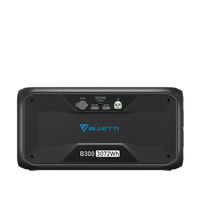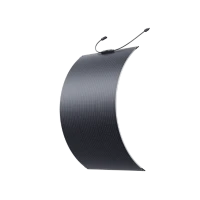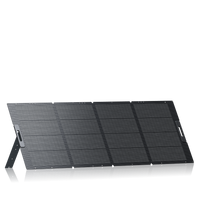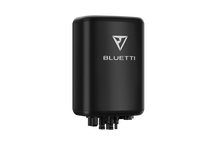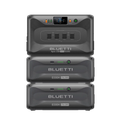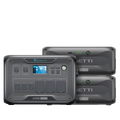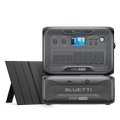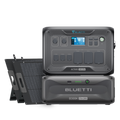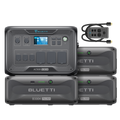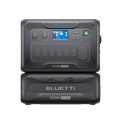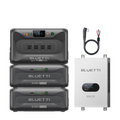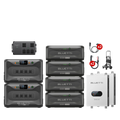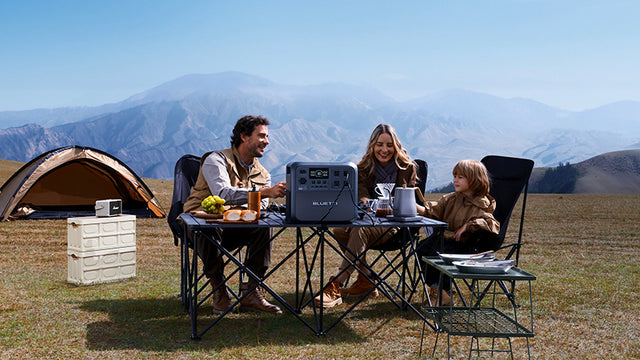Your cart is empty
Shop our products
Solar generators (depending on their capacity) can be a reasonably sizeable upfront investment.
So much so that it stands to reason consumers want to know precisely how long they last.
The answer to this question may come as a surprise to most, but it depends.
How long a BLUETTI solar generator lasts all depends on your chosen model (the battery chemistry) and your usage habits.
In this article, we aim to talk a bit more about solar generators and what factors determine their lifespan.
Understanding Battery Chemistry
First things first, the amount of time a solar generator lasts, all comes down to the components inside, but most importantly, the built in battery.
Not all batteries are built with the same chemistry/technology.
There are currently 4 types of batteries fitted for solar energy storage:
- Lead-Acid batteries
- Lithium batteries
- Red-ox flow batteries
- Hydrogen batteries
Within this categories the are many subcategories too. For example, there are LFP, NCA, LTO, LCO lithium battery types (and many more).
Each one of these subcategories have their own unique benefits and drawbacks.
Here, take a look at a graph from Dragonfly Energy which indicates those differences:
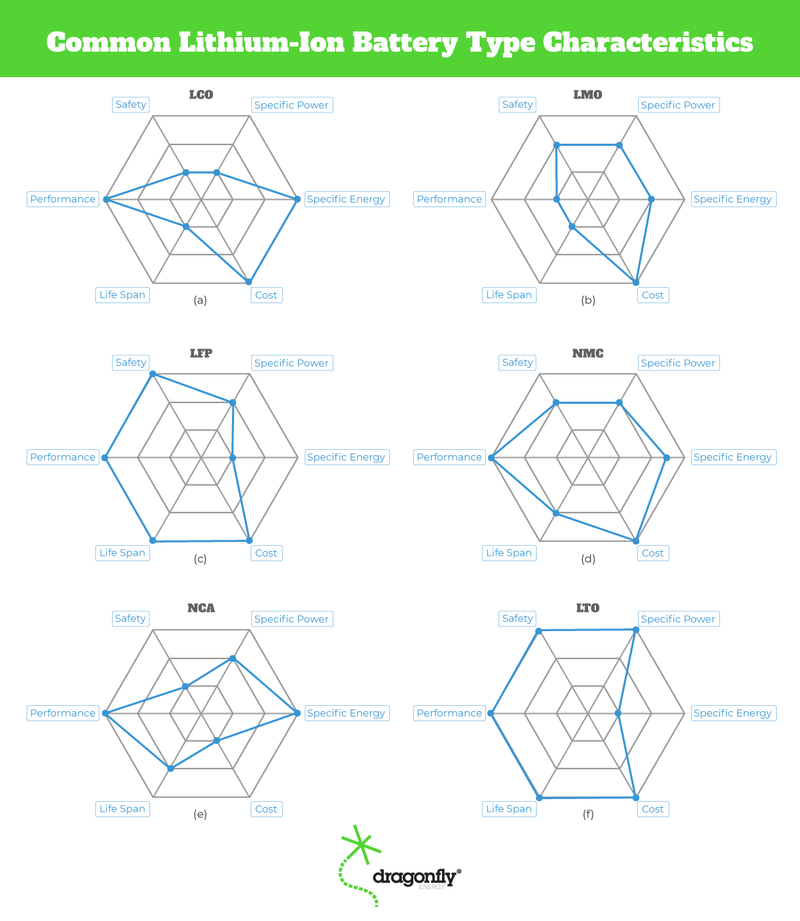
Ideally, solar generators want to have the best performance to cost, life span, specific energy, specific power to safety ratio possible.
Because of this, many solar generators brands have experimented using various battery technologies within their solar generators.
Traditionally, lead-acid batteries are very cheap when compared to lithium batteries. However, their chemistry is designed in such a way that they are not best suited to recharging multiple times.
What Battery Technology Does Bluetti Solar Generators Use?
All of Bluetti's latest solar generators use LiFePO4 or LFP technology.
There are lots of reasons why we use LiFePO4 batteries in our solar generators.
Unlike lead-acid batteries, the LiFePO4 batteries offer significant advantages, including improved discharge efficiency, a long life span, and the ability to deep cycle while maintaining optimum performance.
LiFePO4 batteries have been around for a while.
However, it wasn’t until recently these batteries became a natural choice for many applications, including the solar industry.
Over time, they provide more energy and longer use cycles, making them the perfect investment for you and a good choice if you are thinking of the long term.
1. Performance
Compared with regular lead-acid batteries, LiFePO4 solar generators have a much longer life span. A LiFePO4 battery can operate perfectly for 7-15 years with up to 2500 life cycle.
2. Safety
LiFePO4 batteries are safe to use due to their extremely stable chemistry.
These batteries will not explode even under dangerous conditions like fire, short circuits, or collisions.
Plus, you can use up all of their full capacity without fear of explosion.
3. Climate Resistance
Both lead-acid and LiFePO4 batteries would lose their capacities in extreme weather conditions.
But then, the energy loss from LiFePO4 batteries is minimal compared with lead-acid batteries.
At -20 degrees Celsius, your LiFePO4 battery will likely retain up to 80% of its capacity compared to 30% when using an AGM battery.
4. Lightweight
On average, lead batteries are almost four times heavier than LiFePO4 solar generators of the same capacity. For instance, a 150Ah lead-acid battery can weigh up to 50kg, while a LiFePO4 of the same capacity weighs only 15 kg.
5. Fast Charging
While LiFePO4 batteries charge fast and at the same rate till 100%, a lead-acid battery takes time to absorb its last 20% charge.
How Long Do BLUETTI Solar Generators Last?

| Model | Chemistry | Lifecycles |
| EB3A | LFP | 2,500 + |
| EB55 | LFP | 2,500 + |
| EB70S | LFP | 2,500 + |
| AC200P | LFP | 3,500 + |
| AC200 MAX | LFP | 3,500 + |
| AC300 + B300 | LFP | 3,500 + |
| EP500 Pro | LFP | 3,500 + |
Now that you have an idea on the total lifecycles our solar generators have, you likely want to know what that equates to in terms of time.
Well, let's put it like this, let's assume you deplete your Bluetti solar generator once a day. If your model has 2,500 lifecycles you could expect your solar generator to last 6.8. If your chosen Bluetti solar generator has 3,500 lifecycles, you can expect it to last 9.5 years.
Let's say you deplete it once every second day (much more realistic), well now you have just doubled its lifespan.
Final Thoughts
After reading this article we hope you have a much better idea on battery chemistry and why Bluetti has chosen to go with the LiFePO4 type for their solar generators.
LiFePO4 technology may be quite a bit more expensive than other battery types, but keep in mind that you should mainly be paying attention to the Levelized Cost Of Storage LCOS over the upfront costs of your solar generator.
When deciding which solar generator to go for, we highly recommend working out the LCOS.
By doing this, you may find that while a Bluetti solar generator may be more expensive than the other option, it may last 4x as long and therefore cost potentially half as much over the long run.
Shop products from this article
Be the First to Know
You May Also Like

Deadly Flooding Devastates U.S. South and Midwest — What You Need to Know

BLUETTI Teams Up with Leave No Trace to Power Sustainable Outdoor Adventures

